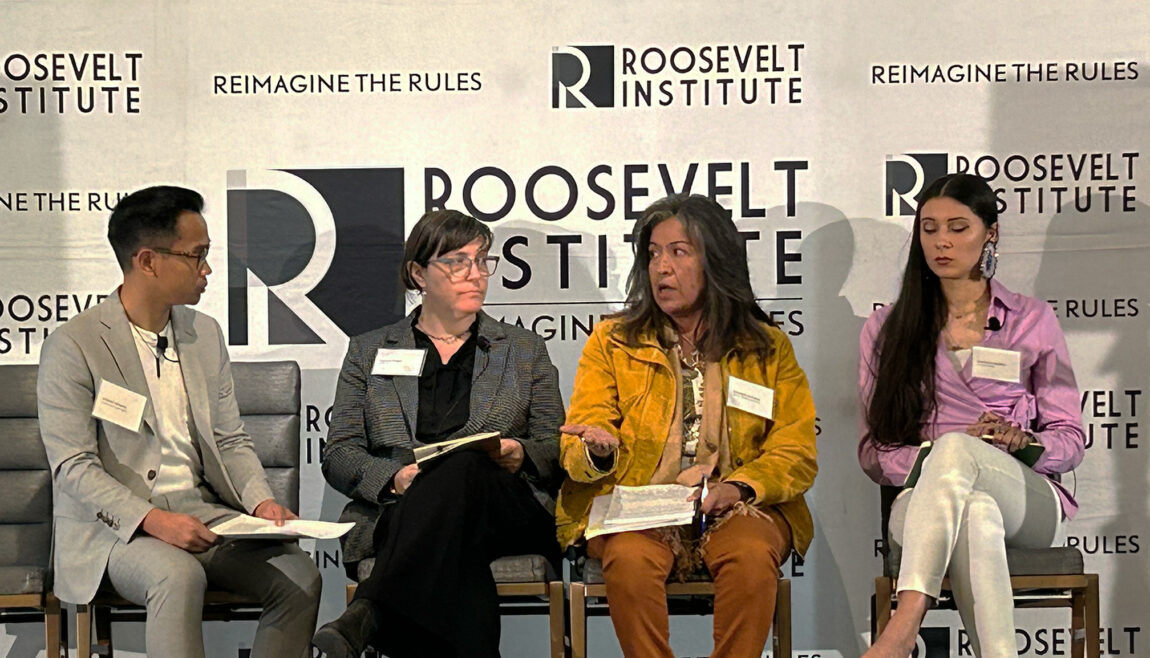
Efficiently greenlighting the development of renewable energy projects is crucial to the clean energy transition. But the conversation about how to reform permitting processes has been dominated by proposals that aim to speed the permitting process by limiting democratic participation and weakening environmental review. These proposals risk leaving frontline communities more vulnerable to exploitation—particularly from polluting industries—and making it faster and easier to develop fossil fuel projects.
On March 21, the Roosevelt Institute hosted a one-day, in-person conversation in Washington, DC, to discuss the need for permitting reform that centers climate justice and highlights progressive ideas for how to hasten the green transition.
10:00 am - Session 1: Welcome
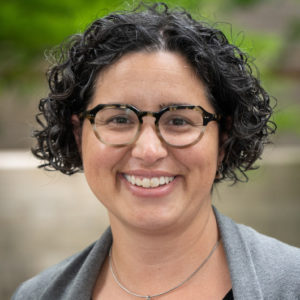
Marissa Guananja
Chief Programs Officer, Roosevelt InstituteAs the Chief Programs Officer, Marissa oversees all of the Roosevelt Institute’s programmatic activities including the Think Tank, the Roosevelt Network, and Policy and Advocacy departments.
Full Bio
As the Chief Programs Officer, Marissa oversees all of the Roosevelt Institute’s programmatic activities including the Think Tank, the Roosevelt Network, and Policy and Advocacy departments.
She also supports the organization’s long-term strategy development, fundraising, and organizational development. Marissa has over 15 years of progressive movement and programmatic experience. Before coming to Roosevelt, she served as a program officer for Family Economic Security at the W.K.Kellogg Foundation where she managed a grantmaking portfolio that focused on job quality, worker power, and racial wealth inequality. Prior to the W.K.Kellogg Foundation Marissa built coalitions and strategic partnership to improve the lives of low-wage and immigrant workers, supported transnational immigrant organizing and economic development efforts, and supported innovations in workforce development and housing.
Marissa is currently pursuing an MBA from the University of Michigan’s Ross School of Business’ executive program. She holds a graduate degree in public policy from George Washington University and a BA from Mount Saint Mary’s University in Los Angeles, CA. She sits on the board of Carina, a home care and child care platform that brings good jobs to care workers.

Rhiana Gunn-Wright
Director of Climate Policy, Roosevelt InstituteAs Director of Climate Policy at the Roosevelt Institute, Rhiana Gunn-Wright leads the think tank’s research at the intersection of climate policy, public investment, racial equity, and public power to create a body of work that examines the role of economic policy and large-scale economic transformation in catalyzing just and rapid responses to the climate crisis.
Full Bio
As Director of Climate Policy at the Roosevelt Institute, Rhiana Gunn-Wright leads the think tank’s research at the intersection of climate policy, public investment, racial equity, and public power. Along with Lew Daly, Kristina Karlsson, and fellows associated with Roosevelt’s Climate and Economic Transformation (CET) Program, Rhiana aims to create a body of work that examines the role of economic policy and large-scale economic transformation in catalyzing just and rapid responses to the climate crisis. She also supports Roosevelt’s engagement with the Green New Deal Network and other partners in the climate movement.
Prior to joining Roosevelt, Gunn-Wright was the policy director for New Consensus, charged with developing and promoting the Green New Deal, and the policy director for Abdul El-Sayed’s 2018 Michigan gubernatorial campaign. A 2013 Rhodes Scholar, Gunn-Wright has also worked as the policy analyst for the Detroit Health Department, acted as the Mariam K. Chamberlain Fellow of Women and Public Policy at the Institute for Women’s Policy Research, and served on the policy team for former First Lady Michelle Obama.
10:15 am - Session 2: Panel – What’s the problem with permitting?

Hannah Vogel
Policy Advisor, Office of Senator Edward MarkeyModerator
Hannah Vogel has worked as a policy advisor on energy, environment, and climate issues for Senator Edward J. Markey of Massachusetts since 2017, and previously worked on climate, energy, and health care issues for Representative Lloyd Doggett (TX-35). Prior to coming to the Hill, Hannah worked on climate strategy for Climate Nexus, coordinating messaging and outreach for US climate nonprofits during the Paris Climate Agreement negotiations in 2015 and the organization of the People’s Climate March in 2014. She got her start in the climate movement as a clean air organizer in Cleveland, Ohio.
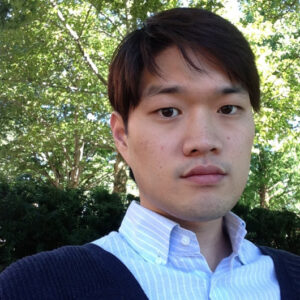
Jungwoo Chun
Postdoctoral Impact Fellow, Massachusetts Institute of Technology Climate and Sustainability ConsortiumPanelist
Jungwoo Chun is a postdoctoral impact fellow at the MIT Climate and Sustainability Consortium (MCSC) and a lecturer at the Department of Urban Studies and Planning (DUSP) at MIT. His dissertation involved investigating clusters of intermediaries that support community ownership of solar energy projects in the US. He has extensive research, teaching, and professional experience related to various aspects of climate change and sustainability with a particular focus on public dispute mediation.
Full Bio
Jungwoo Chun is a postdoctoral impact fellow at the MIT Climate and Sustainability Consortium (MCSC) and a lecturer at the Department of Urban Studies and Planning (DUSP) at MIT. His dissertation involved investigating clusters of intermediaries that support community ownership of solar energy projects in the US. He has extensive research, teaching, and professional experience related to various aspects of climate change and sustainability with a particular focus on public dispute mediation. He currently teaches 11.255 Negotiation and Dispute Resolution in the Public Sector and holds a PhD in environmental policy and planning from MIT DUSP.
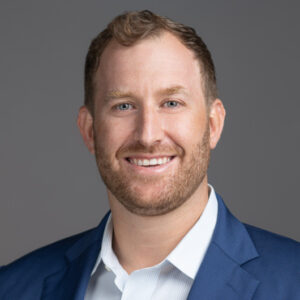
Adam Cohen
Co-founder and CEO, Ranger PowerPanelist
Adam Cohen is co-founder and CEO of Ranger Power. Adam has over 16 years of experience in the renewable energy sector concentrated on the development, construction, and operation of clean energy projects. During his career Adam has successfully developed over 4,000 MW of operating energy projects.
Full Bio
Adam Cohen is co-founder and CEO of Ranger Power. Adam has over 16 years of experience in the renewable energy sector concentrated on the development, construction, and operation of clean energy projects. During his career Adam has successfully developed over 4,000 MW of operating energy projects.
At Ranger, Adam leads all high-level project development, corporate management, and company strategy. Under his leadership, Ranger has permitted more than 1,500 MW and executed over 1,900 MW of utility-scale Power Purchase and Build-Own-Transfer agreements representing some of the largest volumes of solar development in the Midwest. By the end of 2023, Ranger anticipates that over 1,400 MW of their clean energy projects will be in commercial operation–representing over $1 billion dollars of new investment directly into local communities.
Previously, Adam served as president and founder of Ranger Solar and Ranger Energy (part of the Ranger Group), which developed and sold over 1,400 MWs of utility scale solar projects in the New England and Mid-Atlantic energy markets. These projects are now owned by a leading energy company and represent some of the first long-term contracted solar assets in their region that offer on-peak, cost-effective energy to local utilities while providing new economic development to businesses and customers. Prior to forming Ranger, Adam was a founding team member and vice president of Pioneer Green Energy, which brought to construction and into operation over 1,000 MW of new wind and solar projects across the US. Adam has also led wind development projects into commercial operation while at E.ON Climate and Renewables and Airtricity. Adam is a graduate of Northwestern University in Evanston, Illinois.
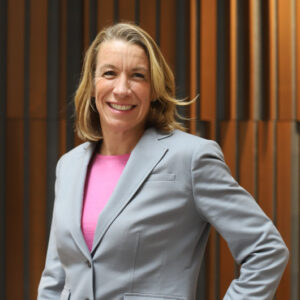
Jamie Pleune
Associate Professor of Law (Research) and Wallace Stegner Center Fellow at the, S.J. Quinney College of Law, University of UtahPanelist
Jamie Pleune is an associate professor of law (research) and Wallace Stegner Center Fellow at the S.J. Quinney College of Law. Her research focuses on environmental review, permitting, climate change, and conservation.
Full Bio
Jamie first joined the University of Utah College of Law as an associate clinical professor in 2011, after finishing a teaching fellowship at Georgetown University Law Center with the environmental section of the Institute for Public Representation. From 2011 through 2015, Jamie taught environmental practice and directed the Environmental Law Clinic. She also engaged in private practice as a litigator, ultimately becoming a shareholder at the law firm of Richards, Brandt, Miller, Nelson. In 2016, she took a short sabbatical from law and earned her commercial helicopter license. After flying helicopter tours in LA and doing flight instruction in British Columbia for a few years, she re-engaged with environmental law. In 2020, she rejoined the faculty and became a member of the Law and Policy Group within the Wallace Stegner Center. Jamie earned her BA from Colorado College; her JD from the University of Utah (Coif); and her LLM from Georgetown Law.
Her most recent publications include Playing the Long Game: Expediting Permitting without Compromising Protections, 52 ENVIRONMENTAL LAW REPORTER 10893 (Nov. 2022); Evidence-Based Recommendations for National Environmental Policy Act Implementation, 47 COLUMBIA J. ENVTL. L. 273 (Spring 2022) (co-authored with John C. Ruple and Eric Heiny); and The BLM’s Duty to Incorporate Climate Science into Permitting Practices and a Proposal for Implementing a Net Zero Requirement in Oil and Gas Permitting, 32 COLO. NAT. RES. ENERGY; ENVTL. L. REV. 253 (Summer 2021) (co-authored with John C. Ruple and Nada Wolff Culver).
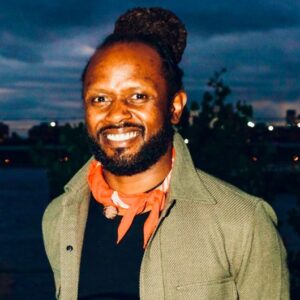
Anthony Karefa Rogers-Wright
Director of Environmental Justice, New York Lawyers for the Public InterestPanelist
Anthony Karefa Rogers-Wright serves as NYLPI’s director of environmental justice. In this capacity, he guides and coordinates the organization’s EJ strategy, litigation, organizing, and advocacy initiatives. Prior to joining NYLPI, Anthony was the policy coordinator and Green New Deal policy lead with the Climate Justice Alliance, where he assisted with developing and promulgating local, state, and federal organizing and policy strategy for the alliance’s then-74 grassroots, frontline-led organizations across the country.
Full Bio
Anthony Karefa Rogers-Wright serves as NYLPI’s director of environmental justice. In this capacity, he guides and coordinates the organization’s EJ strategy, litigation, organizing, and advocacy initiatives. Prior to joining NYLPI, Anthony was the policy coordinator and Green New Deal policy lead with the Climate Justice Alliance, where he assisted with developing and promulgating local, state, and federal organizing and policy strategy for the alliance’s then-74 grassroots, frontline-led organizations across the country.
A veteran of social justice campaigns, Anthony helped lead the effort to make the former Colorado Health Insurance Cooperative the first health insurance provider in the state’s history to remove transgender exclusions from all of their policies in 2012. He has acted as a policy advisor for numerous candidates for elected office including Senator Elizabeth Warren’s presidential campaign in 2020, and Senator Bernie Sanders’s presidential campaigns in 2020 and 2016 when he represented the campaign during testimony to the DNC Platform Committee. Anthony was selected as one of the Grist.org “50 Environmentalists You’ll Be Talking About” in 2016, and recognized as one of New York City’s 100 most influential environmental leaders in 2022 by City and State Magazine.
He’s written numerous articles discussing the axiomatic nexus of the climate crisis and racial injustice and has spoken on the subject at universities throughout the US and in Europe. Anthony serves on the board of directors of Friends of the Earth, Backbone Campaign, Climate Critical Earth, and Center for Sustainable Economy.
He is a proud, participating member of the Black Alliance for Peace, and the Movement for Black Lives Black Hive, and is blessed to be the father of his energetic and very loquacious seven-year-old son, Zahir Cielo (aka “Bean”). He received his double BA in environmental science and policy and jazz Composition, and his master’s degree in community development, environmental science, and public policy from Clark University in Worcester, MA.
11:15 am - Session 3: Panel – What about communities? Permitting as a tool for justice.

Adrien Salazar
Policy Director, Grassroots Global Justice AllianceModerator
Adrien Salazar is a climate justice advocate who has fought for transformative and equitable climate policy, food and land justice, and environmental justice for over 15 years. He is policy director at Grassroots Global Justice Alliance and a Roosevelt Institute fellow, chairs the Filipino American Coalition for Environmental Solidarity, and serves on the board of the Sustainable Economies Law Center.
Full Bio
Adrien Salazar is a climate justice advocate who has fought for transformative and equitable climate policy, food and land justice, and environmental justice for over 15 years. He is policy director at Grassroots Global Justice Alliance and a Roosevelt Institute fellow, chairs the Filipino American Coalition for Environmental Solidarity, and serves on the board of the Sustainable Economies Law Center. He also convenes the Green New Deal Policy Nexus network of movement leaders and policy experts to advance climate justice policy and strategy.
As a member of the NY Renews Coalition, he supported the development and passage of New York’s 2019 Climate Leadership and Community Protection Act. He co-authored the Indigenous People’s Land Management chapter of Drawdown: The Most Comprehensive Plan Ever to Reverse Global Warming (2017, Penguin Press). He was recognized as one of the 2019 Grist 50 Fixers on Grist.com. His writing has appeared in Fortune Magazine, Rosa Luxemburg Stiftung, The Trouble, Common Dreams, Gotham Gazette, Sage Magazine, and the Yale Tropical Resources Bulletin. His work focuses on redistributive and reparative investments, racial equity in climate policy, and land and resource governance. He is from San Jose, California, and Kalibo, Aklan, Philippines, and enjoys running, caring for plants, and visiting the sacred places of the earth.

Aminah Ghaffar
Community Organizer, 7 Directions of ServicePanelist
Aminah Ghaffar is a Lumbee and Black advocate from Lumberton, NC. She is a part-time community organizer for 7 Directions of Service, and a board member of the MMIW NC Coalition. She ran track and studied biology at East Carolina University and Integrative Medicine at Georgetown University, and will soon be attending NC Central Law School.

Fermina Stevens
Director, Western Shoshone Defense ProjectPanelist
Fermina’s work experience includes serving as chairperson for Elko Band Council and serving in the early 2000s as a council member for the Te-Moak Tribe of Western Shoshone, where she is an enrolled member. In addition, she worked at various management levels of the Tribal Government, where she gained knowledge in governmental affairs. Since then, Fermina has been employed as a legal assistant and is the manager of the Historic Henderson Bank Building in downtown Elko, Nevada.
Full Bio
Fermina was born and raised in Elko, Nevada, where she attended Elko High School and Great Basin College. Fermina’s work experience includes serving as chairperson for Elko Band Council and serving in the early 2000s as a council member for the Te-Moak Tribe of Western Shoshone, where she is an enrolled member. In addition, she worked at various management levels of the Tribal Government, where she gained knowledge in governmental affairs. Since then, Fermina has been employed as a legal assistant and is the manager of the Historic Henderson Bank Building in downtown Elko, Nevada.
Fermina also volunteers her time on various committees for Elko Band Council and Elko Indian Colony to assist in the development of her community and to help preserve Shoshone history. As the new director of the Western Shoshone Defense Project, Fermina lends her voice and her skills to the protection of the land and water of her traditional Shoshone homelands in Nevada.
Fermina’s goal is to help preserve and protect the Land, Air, Water, and Sun/Spirit (LAWS) for future generations so they may prosper and live life in a good and healthy way.
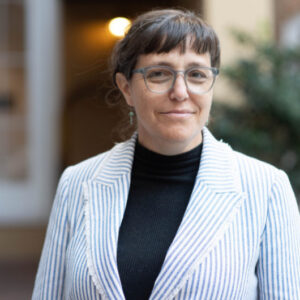
Naomi Yoder
Staff Scientist, Healthy GulfPanelist
Naomi works as part of the science and policy team at Healthy Gulf. Their work includes supporting Healthy Gulf efforts to defend the Gulf Coast from dirty energy and pollution, to uplift environmental justice and climate justice communities, and to advocate for wetlands and biodiversity protections.
Full Bio
Naomi works as part of the science and policy team at Healthy Gulf. Their work includes supporting Healthy Gulf efforts to defend the Gulf Coast from dirty energy and pollution, to uplift environmental justice and climate justice communities, and to advocate for wetlands and biodiversity protections. They review NEPA, air, water and coastal use permit applications for development (especially oil, gas, and petrochemical development) in coastal Gulf of Mexico US states and offshore. Naomi also makes maps and contributes Geographic Information Systems and spatial analysis to efforts across the organization in coalition spaces. Naomi is trained in geography and oceanography. They hold two MS degrees from the University of Southern Mississippi (2016) and University of Oxford (2006), in marine science and geography, respectively.
12:45 pm - Session 4: Keynote
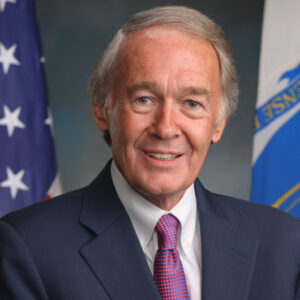
Senator Edward Markey of Massachusetts
For more than 40 years, Senator Markey has served the Commonwealth of Massachusetts as a congressman and US senator. He has been a national leader and author of some of the most important laws in the areas of energy, the environment, and telecommunications policy. On a bipartisan basis, he has passed more than 500 pieces of legislation into law.
Full Bio
For more than 40 years, Senator Markey has served the Commonwealth of Massachusetts as a congressman and US senator. He has been a national leader and author of some of the most important laws in the areas of energy, the environment, and telecommunications policy. On a bipartisan basis, he has passed more than 500 pieces of legislation into law. He has been a powerful and effective voice for enhancing energy efficiency, transitioning our economy to clean and sustainable energy resources, and mitigating the consequences of climate change; bolstering US and global security by staunching nuclear proliferation and promoting arms control; defending human rights; enacting financial reforms to protect consumers and investors against the types of abuses that directly triggered the global recession; ensuring the continued openness of the internet; and advancing the interests of consumers by injecting competitiveness into electric, telecommunications, and telephone markets, and protecting the privacy of personal information.
Senator Markey currently serves as chair of the Clean Air, Climate, and Nuclear Safety Subcommittee on the Senate Environment and Public Works Committee, as well as the chair of the Primary Health and Retirement Security Subcommittee on the Health, Education, Labor, and Pensions Committee. He is also a member of the Commerce, Science, and Transportation Committee and the Small Business Committee.
Senator Markey received his BA from Boston College and his JD from Boston College Law School. He served in the US Army Reserve and two terms in the Massachusetts State House before being elected to Congress.
1:15 pm - Session 5: Panel – NEPA reform: How can permitting support equity and improve democratic participation?

Dana Johnson
Senior Director of Strategy and Federal Policy, WE ACT for Environmental JusticeModerator
Dana Johnson serves as senior director of strategy and federal policy at WE ACT for Environmental Justice and leads an advocacy, regulatory, and policy-setting team. She has successfully helped shape the environmental industry narrative in the areas of clean air, healthy homes, water quality, energy democracy, and transportation standards.
Full Bio
Dana Johnson serves as senior director of strategy and federal policy at WE ACT for Environmental Justice and leads an advocacy, regulatory, and policy-setting team. She has successfully helped shape the environmental industry narrative in the areas of clean air, healthy homes, water quality, energy democracy, and transportation standards. A sought-after thought leader, Dana has moderated conversations about equitable policymaking on behalf of the New York Bar Association and Massachusetts Institute of Technology Water Club. She also conceptualized and co-hosted an environmental justice education series on Clubhouse titled “All Heat, No Shade.” This series built awareness of President Biden’s climate executive orders and his “whole-of-government” approach to addressing environmental justice and the climate crisis. Dana is a board member of Green 2.0—a nonprofit organization that believes that the voices and leadership of a powerful environmental movement must be as diverse as the causes it champions. She also is on the advisory council of the State Energy & Impact Center of NYU School of Law.

Raul Garcia
Legislative Director for Healthy Communities, Policy and Legislation, EarthjusticePanelist
Raul Garcia is the legislative director for healthy communities in the Policy & Legislation (PAL) department at Earthjustice. Raul focuses on protecting communities from pesticides and toxic chemicals. He also leads Earthjustice’s team of advocates dedicated to defending and improving federal safeguards for clean air, clean water, and against toxics exposure.
Full Bio
Raul Garcia is the legislative director for healthy communities in the Policy & Legislation (PAL) department at Earthjustice. Raul focuses on protecting communities from pesticides and toxic chemicals. He also leads Earthjustice’s team of advocates dedicated to defending and improving federal safeguards for clean air, clean water, and against toxics exposure. Prior to holding his current position, Raul served as a senior legislative counsel in the PAL department and focused on protecting the National Environmental Policy Act, as well as advancing environmental, health, and safety protections in infrastructure development.
Prior to joining Earthjustice, Raul developed a legal career working to protect the rights of underrepresented communities, including advocating for voting and civil rights, immigration benefits and labor and employment protections. As a native of Mexico City who moved to Chicago at age 10, Raul sees environmental advocacy as an extension of his work protecting and advancing the interests of underrepresented communities.
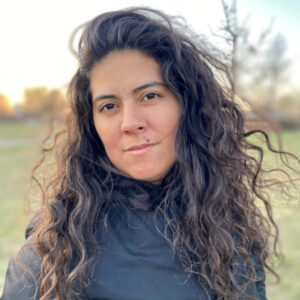
Maria Lopez-Nuñez
Deputy Director of Organizing and Advocacy, Ironbound Community CorporationPanelist
Maria Lopez-Nuñez is an environmental justice organizer and plays a large role in activating and uplifting her community while also pushing for policies to address environmental injustice locally, regionally, and nationally. She is on the board of the Climate Justice Alliance and serves on the White House Environmental Justice Advisory Council. She helped to pass the country’s strongest, Cumulative Impacts Law in the state of New Jersey last year. She helped Newark become the third city in the country with a Right to Counsel.
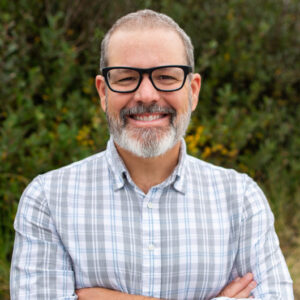
Erik Schlenker-Goodrich
Executive Director, Western Environmental Law CenterPanelist
Erik is the executive director of the Western Environmental Law Center, a public interest environmental law firm that envisions a thriving, resilient Western US, abundant with protected public lands and wildlife, powered by clean energy, and defended by communities rooted in an ethic of conservation. Based in Taos, New Mexico, where he has now lived for more than two decades, Erik is a graduate of Cornell University with a BS in natural resources, and earned his law degree and a certificate in environmental and natural resources law from the University of Oregon School of Law.
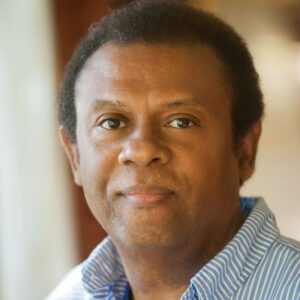
Nicky Sheats
Director of the Center for the Urban Environment at the John S. Watson Institute for Urban Policy and Research, Kean UniversityPanelist
Dr. Nicky Sheats, Esq., is the director of the Center for the Urban Environment of the John S. Watson Institute for Urban Policy and Research at Kean University and has defined the primary mission of the center as providing support for the environmental justice (EJ) community. Among the issues he works on are air pollution, climate change, cumulative impacts, developing EJ legal strategies, and increasing the working capacity of the EJ community.
Full Bio
Dr. Nicky Sheats, Esq., is the director of the Center for the Urban Environment of the John S. Watson Institute for Urban Policy and Research at Kean University and has defined the primary mission of the center as providing support for the environmental justice (EJ) community. Among the issues he works on are air pollution, climate change, cumulative impacts, developing EJ legal strategies, and increasing the working capacity of the EJ community.
Nicky was a founding member of the NJ EJ Alliance, EJ Leadership Forum, EJ and Science Initiative, the Equitable and Just National Climate Platform, and an informal NE EJ Attorneys Group. He has been appointed to the NJ Clean Air Council, EPA’s Clean Air Act Advisory Committee, and National EJ Advisory Council, and was a co-author of the human health chapter of the 2014 national climate assessment. He is currently serving on the newly created White House EJ Advisory Council. Early in his career, Nicky practiced law as a public interest attorney. He holds a BA from Princeton University and earned a PhD in earth and planetary sciences, JD, and MPP from Harvard University.
2:00 pm - Session 6: Panel – How can we reform permitting processes related to transmission?

Jennie Chen
Senior Manager, Clean Energy, World Resources InstituteModerator
Jennifer Chen works to help shape electricity, transmission, and governance policies with an eye toward modernizing grid infrastructure, scaling up clean energy, and driving cost-effective electrification. She has written and presented on these topics, including testifying before the US Congress and the US Federal Energy Regulatory Commission (FERC).
Full Bio
Jennifer Chen works to help shape electricity, transmission, and governance policies with an eye toward modernizing grid infrastructure, scaling up clean energy, and driving cost-effective electrification. She has written and presented on these topics, including testifying before the US Congress and the US Federal Energy Regulatory Commission (FERC).
Previously, Jennifer led federal electricity policy work at the Nicholas Institute, a think tank for environmental policy solutions at Duke University. She was an attorney with the Natural Resources Defense Council, where she spearheaded environmental NGO coalition efforts to advocate for an efficient and flexible power system. She also has experience working with electricity customer and renewable energy groups as an independent consultant and began her energy career at FERC.
Jennifer earned a JD from New York University and a physics PhD from the University of Chicago. She is a board member at the Council for New Energy Economics and a member of the US Department of Energy Electricity Advisory Committee.

Nathanael Green
Senior Renewable Energy Advocate, Climate & Clean Energy Program, Natural Resources Defense CouncilPanelist
Nathanael Greene is a senior renewable energy advocate and is responsible for coordinating NRDC’s work on renewable power. NRDC aims to quickly and dramatically expand the use of renewable energy in the most sustainable and cost-effective way. Nathanael has particular expertise in clean energy technologies including on and offshore wind, solar and biomass energy, and in regulations and policies to promote these technologies.
Full Bio
Nathanael Greene is a senior renewable energy advocate and is responsible for coordinating NRDC’s work on renewable power. NRDC aims to quickly and dramatically expand the use of renewable energy in the most sustainable and cost-effective way. Nathanael has particular expertise in clean energy technologies including on and offshore wind, solar and biomass energy, and in regulations and policies to promote these technologies. For the last decade he has focused on policies to ensure rapid deployment of renewables in ways that avoid, minimize, and mitigate impacts on wildlife and is on the board of the American Wind Wildlife Institute. He joined NRDC in 1992 after receiving his BA in public policy from Brown University. He worked two years before getting an MS in energy and resources from University of California Berkeley and returned to NRDC in 1996. He has worked there since.

Suedeen Kelly
Partner & Co-chair, Energy Practice, Jenner & Block LLPPanelist
Suedeen represents and counsels clients throughout the energy industries. She helps them make the challenging decisions they face through understanding; navigating; complying with; and as needed, changing federal, state, and local energy law and policy.
Full Bio
Suedeen represents and counsels clients throughout the energy industries. She helps them make the challenging decisions they face through understanding; navigating; complying with; and as needed, changing federal, state, and local energy law and policy.
Private companies, public utilities, cooperatives, startups, trade associations, and even regulators across the US rely on Suedeen’s guidance. She helps them understand when to request approvals or file complaints, manage risk, comply with regulations, defend themselves in regulatory, legal and enforcement actions, and appeal decisions as needed. Suedeen also excels at helping clients seize opportunities that arise due to changes in law and energy policy, working across the energy sector from electricity and natural gas to hydrogen and carbon capture.
Whether facing regulators, legislators, or judges, Suedeen works to create solutions that are right for her clients while also appealing to decision makers and other interests, clearing the way for clients to achieve their goals. She brings her diverse experience as an energy litigator, regulator, academic, environmental advocate, and legislative staffer to help her clients advance their mission. She is able to see all sides of the problem to enable her clients to fashion the best approach to solving problems and taking advantage of opportunities.
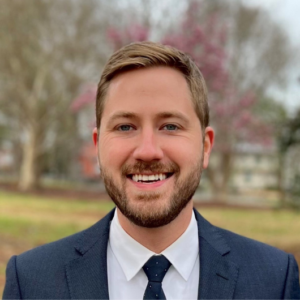
Tyler Norris
Vice President of Development, Cypress Creek RenewablesPanelist
Tyler Norris is VP of development at Cypress Creek Renewables, one of the most active US solar and storage firms, with 12GW developed to date and a project pipeline of 23GW. In this capacity, he leads a full-service development and power marketing team.
Full Bio
Tyler Norris is VP of development at Cypress Creek Renewables, one of the most active US solar and storage firms, with 12GW developed to date and a project pipeline of 23GW. In this capacity, he leads a full-service development and power marketing team.
In 2012, Tyler received a White House appointment to the Office of Secretary Steven Chu at US DOE. As a special advisor for commercialization, he advised the development of programs to accelerate energy technology commercialization and was lead author of DOE’s first Technology Transfer Execution Plan, a report to Congress encompassing $10 billion in RD&D programs.
Following DOE, he was a director at S&P Global Platts, an international energy market intelligence firm. There he led the firm’s US market analysis for renewables and storage and co-authored its global technology outlook, providing forecasts and advisory services to electric utilities and integrated majors, among other clients.
Tyler has served as an expert witness in multiple state utility commission proceedings and published on energy-related topics in Harvard Law & Policy Review, Issues in Science & Technology, Foreign Affairs, and elsewhere. In 2022,Tyler co-authored a widely acclaimed New York Times op-ed, named by ACORE as the #2 article of the year on US transmission issues.
In 2019, he was awarded “Clean Energy Leader of the Year” by one of the Southeast’s largest environmental organizations, the NC Sustainable Energy Association. He was elected vice chair of the Carolinas Clean Energy Business Association for 2020 and 2021, served on Gov. Cooper’s Carbon Policy Working Group, co-chairs the Clean Power Suppliers Association, and serves on the board of the NC Clean Energy Fund.
Tyler is a recipient of the Truman Scholarship and Forbes 30 Under 30, received his BA in public policy from Stanford University, and graduated from the NC School of Science & Mathematics.

Christine Powell
Deputy Managing Attorney, EarthjusticePanelist
Christine is a deputy managing attorney in Earthjustice’s clean energy program, where she leads a team of FERC practitioners who advocate to reform the wholesale electricity markets and transmission planning process to support an equitable transition to a 100 percent clean, affordable, and sustainable grid.
Full Bio
Christine is a deputy managing attorney in Earthjustice’s clean energy program, where she leads a team of FERC practitioners who advocate to reform the wholesale electricity markets and transmission planning process to support an equitable transition to a 100 percent clean, affordable, and sustainable grid.
Prior to this role, Christine served as the chief of staff to two commissioners and an administrative law judge at the California Public Utilities Commission, where she focused on clean energy policies, including building decarbonization and phasing out natural gas infrastructure. She also served as an attorney-advisor at FERC, where she advised the commission on energy markets rate design issues and transmission proceedings, including Order No. 1000 compliance filings, rehearing requests, and remand proceedings. Christine received her undergraduate degree from Howard University, master’s in administrative studies from Boston College, and JD from Santa Clara University.
2:45 pm - Session 7: Closing keynote

Abbie Dillen
President, EarthjusticeAbigail (Abbie) Dillen, serving as the first female steward in the organization’s 50-year history, leads the organization’s staff, board, and supporters to harness the power of law to protect our environment and people’s health. Dillen joined the organization in 2000, initially focusing on public lands and wildlife protection. She then led the organization’s litigation and legal advocacy to achieve the essential shift from fossil fuels to 100 percent clean energy and played a central role in forcing the overdue retirement of coal-fired power plants around the country.
Full Bio
Abigail (Abbie) Dillen, serving as the first female steward in the organization’s 50-year history, leads the organization’s staff, board, and supporters to harness the power of law to protect our environment and people’s health. Dillen joined the organization in 2000, initially focusing on public lands and wildlife protection. She then led the organization’s litigation and legal advocacy to achieve the essential shift from fossil fuels to 100 percent clean energy and played a central role in forcing the overdue retirement of coal-fired power plants around the country.
Abigail received her BA from Yale University and her law degree from the University of California, Berkeley. Earthjustice is headquartered in San Francisco with over 550 staff, over 200 lawyers.